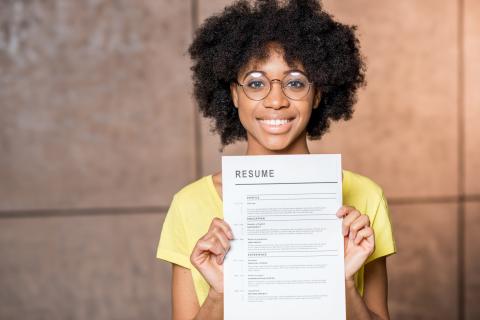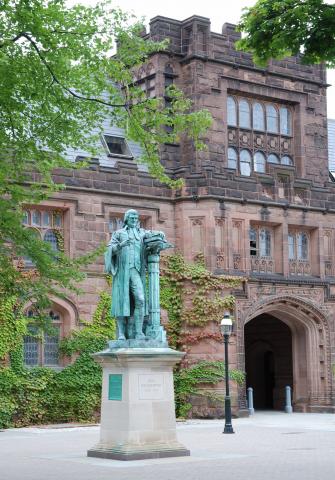How Far Back Should a Resume Go?
Jun 29,2023
Searching for a new job can be a stressful process. The average corporate job posting can receive up to 250 resumes and applications for one open position. This can be a somewhat painful thing for job hunters to hear.
However, it does reinforce the importance of creating a resume that is polished and professional looking. A good professional resume can help with career development if you are starting to look for a first job. It can also impact career growth if you are thinking about changing careers.
But how far back should a resume go? The answer to this question is multi-layered and based on your unique skills and previous work experience. It also depends on the types of resumes and the job you're looking for.
To learn about creating a resume that will get noticed, keep reading below for more helpful information.
How Far Back Should a Resume Go?
The long and short answer to the question, "How far back should a resume go?" is pretty straightforward. The consensus is that your resume should go back no more than 10-15 years. So only the most recent work experience during this period should be highlighted.
If you are a seasoned professional of the working world or are higher up in your age bracket, you don't need to include your first Summer job working at the pet store. If it's not within the past 10-15 years, including it in your professional resume is not pertinent.
There are some exceptions to this rule, though. You need to consider how your work experience plays into this aspect.
Based on Your Level of Work Experience
Resumes must be specific to the type of job you're looking for. So all your work experience needs to apply to that job. If you're just starting out, you may have to get a little more creative listing job experience.
Recent Graduates and Students: 2 Years or Less Job Experience
Finding your first major job out of high school or college can be challenging. You will need to consider putting down any part-time jobs you had, even if they were just temporary Summer jobs, to show you have some work experience.
Try to put jobs relevant to the one you're applying for. If your previous jobs don't immediately relate to the one you're applying for, you will need to look at some of your working skills instead.
For instance, if you did some data entry office temp work at an office, this may not directly correlate to working in a high-tech firm. But if you could help troubleshoot computers, this is a handy transferable skill you can include.
You can also include high school or college extracurricular activities or internships that may be relevant. This will help you build up your soft skills. Soft skills are any character traits, professional qualities, or interpersonal skills that make you desirable in the workplace.
Some examples of soft skills include:
- Good time management
- Leadership
- Teamwork
- Problem-Solving
- Communication
61% of employers consider soft skills as necessary as hard skills on a professional resume. If you were part of an on-campus club or other organization where you learned critical soft skills, include them on your resume. All of these elements are important to career development.
Early to Mid-Level Workers: 2 to 15 Years of Job Experience
Those with 2 to 15 years of job experience focus more on career growth. If you are on the higher end of the 10-15 year mark, you can afford to be a little more picky about what job experience you include on your professional resume. If you're on the lower end, under 10 years, you must still hone your work experience appropriately.
You must also edit and update your professional resume each time you change jobs. You always need to be sure to tailor it to the specific new job you're applying for instead of making it a general spread of work experience.
If you're applying for a tech job, your years of work experience in customer service in a department store may not be a helpful factor in making you a prime candidate for a tech-specific job. It would be beneficial if you were applying for a customer service job in computer or smartphone sales.
More experience means it is less important to focus on the question, "How far back should a resume go?" Instead, it's about the quality of your job contributions over the number of jobs you've held.
With expanded career growth after graduation, you have more flexibility. You don't have to try hard to stretch skills and experience to pad your resume. Instead, your resume should only focus on your most recent and relevant work experiences.
A 10 to 15-year work experience window lets you clear out earlier work experience history. This frees up more space on your resume to add a special interests section, make mention of any continuing ed classes, or note any professional organizations. This illustrates that you are committed to further developing your workplace and technical skills.
Based on Word Count and Length
The main focus of a professional resume should be on its conciseness. Many employers only briefly skim resumes for content.
In some larger businesses, employers use special scanners called applicant tracking systems (ATS) to read resumes. Because of these scanners, as much as 75% of resumes are never even seen by human eyes. To cut out the middleman by more prestigious businesses, your resume could get lost if it isn't up to par.
That's why keeping your resume short and sweet is ideal in most cases. A standard length of a professional resume is between 1-2 pages at most. If you can keep your resume to one concise page, that is even preferable to most potential employers.
If you need to use two pages, make sure it is all relevant information on both pages; otherwise, it's just window-dressing. Studies show that the average resume is around 489 words long, with a one-page resume clocking in at about 380 words. Two-page resumes are recommended for individuals with a wider berth of work experience to showcase.
Academic and government resumes are the exception to the rule for how far back a resume should go. These types of resumes are required to have a more comprehensive and involved history.
A Federal government resume can range between 3-5 pages on average. While an academic curriculum vitae resume averages 2-4 pages or as much as 10 pages maximum for more experienced professionals.
Based on Gaps in Work Experience
Ideally, hiring managers want to see a consistent working history. However, this may not be the case for everyone. There may be periods when you've had to take time off to tend to personal or familial issues. Some instances of resume gaps include:
- Long illness or injury recovery
- Taking care of a sick family member
- Going on maternity leave
- Pursuing further educational opportunities
- Undergoing specialized training
- Engaging in service projects
- Job layoffs/downsizing
- Extended periods of Unemployment
If you took time off between jobs, your resume might have noticeable gaps under Work Experience. If you secure an interview with a potential employer, they will likely ask you about any significant intervals when you were not actively employed. You will need to account for these gaps accordingly.
Instead of leaving many blank spaces, you should include these on your resume with a heading like "Planned Career Break." Put down any ways you continued your education or training by listing any online courses and certifications you may have taken during your downtime within this period. If you wish to elaborate further about your resume gap, you can explain the reasons in your cover letter.
Using Soft Skills for Gaps in Work Experience
If you embarked on a service opportunity like The Peace Corps or missionary work, this is a great way to demonstrate any soft skills you have learned during your service time. You can make mention of leadership experiences or group projects that will show your ability to engage in collaboration and teamwork. You can also highlight areas like adaptability, resourcefulness, and communication.
Being open and honest about your career gaps will help employers see that you are still proactive about expanding your professional profile and your interpersonal skills for the working world. You can tackle life's hiccups and setbacks with poise, grace, and optimism.
Find Helpful Information for Creating a Resume at Honor Society
Finding the right job can be a stressful, tedious, and sometimes discouraging process. But now that you understand the answer to the question "How far back should a resume go?", you can be on your way to crafting a professional resume that will make employers notice.
Honor Society is here for you every step of the way, with resources for career growth and career development. Find information on scholarships and jobs. You'll also get discounts on healthcare plans and dining discounts.
Sign up to become an Honor Society Member by completing an application on our website today.





